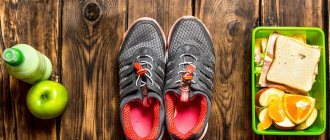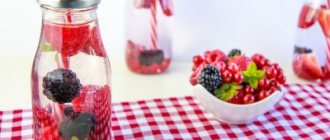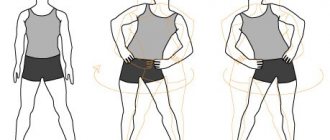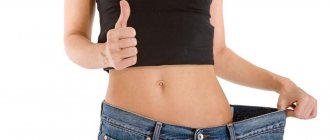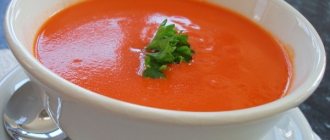Energy drinks before workout
To motivate themselves to train, increase performance, strength potential and endurance, bodybuilders take energy sports supplements.
These specialty drinks are often called pre-workouts because they are consumed before a workout. The high popularity of energy drinks prompts many bodybuilders to look for information about the effectiveness of these supplements, possible side effects, and what ingredients can be used to prepare an energy drink at home. The action of pre-workout complexes is based on the activity of the components contained in the product. Supplements are mainly produced based on creatine, amino acids, caffeine, vitamins, arginine, and guarana. Each component has its own specific effect. Guarana and caffeine are powerful stimulants of the nervous system. Arginine and amino acids are ingredients that increase endurance and performance during training. There are certain restrictions on the use of energy drinks. If you regularly abuse caffeine and other stimulants, it is dangerous for the heart and leads to the development of related problems.
How to take energy drinks
The rules for using the complex depend on the specific brand, but there are some general rules. Most energy drinks are drunk before training (15-20 minutes before). To enhance the effect obtained from the sports supplement, some bodybuilders take drinks along with L-carnitine, BCAA amino acids, and vitamin and mineral complexes.
Experienced bodybuilders recommend drinking energy drinks not every day, but only when they train. The supplement can be used with various sports nutrition, but not with other pre-workout complexes of a similar spectrum of action. If you take energy drink together with other fat burners, it will create a health hazard. When using pre-workout supplements, you should avoid coffee and other stimulating drinks. Large doses of caffeine negatively affect the heart and cause insomnia.
How to choose the right sports nutrition option?
Manufacturers offer powerful pre-workout complexes with various compositions. Which one to choose depends on the athlete’s goals.
- To gain muscle mass,
you need a product with a source of protein and substances to improve blood flow. It will help increase muscle volume and create a beautiful relief. - To increase activity, speed, and energy
(which is especially in demand at competitions), you should buy a pre-workout complex with stimulants. It will increase your performance and give you the opportunity to show the best results. - Before training with a large cardio load,
you need to take something that supports the heart and increases blood circulation. Such ingredients will allow you to exercise for a long time without feeling tired. Products with a large amount of antioxidants will also be effective - they will allow you to quickly recover after sports activities and avoid unpleasant sensations in muscles and ligaments.
SportExpert Energy, 8 doses of 50 ml, Evalar
599 ₽
Dietary supplement NOT A MEDICINE
How to take a pre-workout supplement correctly? The dose recommended by the manufacturer should be taken 15–30 minutes before the start of classes or competitions. At the same time, there should be at least 4–5 hours left before bedtime, otherwise the stimulating substances included in such sports nutrition will provide insomnia. The powdered product is pre-diluted with water, capsules and drinks are ready for use.
Homemade energy drink recipes
Ready-made energy complexes, especially high-quality ones, are quite expensive. However, using fairly inexpensive ingredients, you can prepare a pre-workout at home. Such homemade energy drinks are, of course, inferior to store-bought ones, but they help achieve tangible results. They invigorate, increase motivation and productivity.
The classic pre-workout formula includes caffeine and is prepared as follows:
- Brew three bags of regular black tea without any additives and leave to brew for a while;
- pour the resulting tea leaves into a container with a volume of half a liter;
- add cold water to the remaining volume so that the dishes are almost full;
- add 20 pieces of ascorbic acid to the resulting mixture (one tablet contains 50 mg of vitamin C);
- Stir the resulting drink until ascorbic acid is completely dissolved, and then place the additive in the refrigerator.
The energy drink, which is quite simple in composition, has a good effect on the body. Tea contains not only caffeine, but also other tonic substances. Ascorbic acid suppresses catabolic processes well. Water replenishes the fluid expended during training.
There is another option for preparing energy drinks, but without using caffeine-containing components:
- 500 ml of water is poured into the container;
- dissolve a few tablespoons of natural honey in the liquid;
- add a little lemon juice and 0.2 grams of succinic acid;
- A small amount of alcohol tincture is added to the drink.
This pre-workout complex prevents catabolism thanks to its vitamin C content, motivates and improves performance in classes due to the inclusion of adaptogens, and honey with succinic acid energizes.
Both complexes can be drunk not only before, but also during training.
What to eat before training: 10 tips from Brodude
Before we talk about the pre-workout menu, let's discuss what if you don't eat at all? People who want to lose weight often train on an empty stomach. If you want to lose weight, it makes sense to do about 20 minutes of intense aerobic exercise on an empty stomach, and this will be more effective than doing cardio for an hour after eating. At least that's what is commonly believed.
Indeed, there is evidence that training on an empty stomach increases fat oxidation and allows fat to be converted into energy faster. But more fat consumption does not necessarily mean more weight loss, since fat is also taken from muscle cells, and not just from subcutaneous fat. And when the exercise is over, the unoxidized fat returns to the adipose tissue. So all these benefits of training on an empty stomach are not obvious. To make matters worse, the precious protein from your muscles is also used as fuel. Research published in the American Journal of Applied Physiology found that nitrogen losses from protein breakdown double when exercising on an empty stomach. This is bad news for those who want to build muscle.
That's why, man, you need to eat before training. Research has found that consuming carbohydrates before exercise slows down fatigue and improves endurance and physical performance. This happens because carbohydrates increase blood glucose levels and make muscles more active. About 70% of the energy you get before exercise should come from carbohydrates, but you should choose foods with a low glycemic index: oatmeal, vegetables, sweet potatoes, rather than chocolates and cookies. Protein is also very important to keep your muscles from breaking down during your workout. Fats take the longest to digest, so before training you should consume as little fat as possible.
The biggest challenge is knowing how much you can eat before training. You will understand this from your own experience. Some dudes can eat a full three-course meal an hour before heading to the gym and work out like crazy, while other guys with more sensitive bellies eat three to four hours before working out. In general, if you plan to eat a substantial meal of 500-600 calories, do it three hours in advance. A small snack of 300 calories or less can be eaten an hour before your workout. Experiment with portion sizes and timing to find what works best for you.
If a long workout is coming up, you need to add carbohydrates to the menu. If you plan to do strength training, you need to add more protein. Here are our suggestions.
Nutritional features for all body types: recommendations
There are several body types: ectomorph, mesomorph, endomorph. Ectomorphs differ from others in their low body fat content and fast metabolism. Such an organism is able to quickly digest food into energy and not store fat reserves. This type needs to eat an hour before training , since prolonged fasting will harm the muscle mass of this type of constitution.
The doses of proteins and carbohydrates are maximum. As for mesomorphs and endomorphs , you need to be careful here, especially the latter, and not just count BJUs, but consume them from the right foods. This constitution has a low metabolic rate and easily stores unspent energy in the fat depot. Therefore, the task of the owner of an average and obese constitution is to protect himself from simple carbohydrates before and after training . Those losing weight are allowed simple carbohydrates only for breakfast to raise blood glucose levels. Before morning training, honey, fruits, dried fruits, and dairy products are allowed. The rest of the time your diet consists of:
- Proteins – lean meat and fish, eggs.
- Carbohydrates – cereals, unsweetened and non-starchy vegetables, herbs.
Fortunately, for an ectomorph there are no food or calorie restrictions. As for everyone, it is undesirable to consume large amounts of fat before training , this contributes to a feeling of discomfort in the digestive organs and a decrease in physical activity.
Oatmeal, sir
Recipe: ½ cup whole oatmeal and 1 scoop protein powder. When to eat: before endurance exercise, one to two hours before training. Calories: 420, proteins: 33 g; fats: 7 g; carbohydrates: 57 g; sugar: 2 g.
Oatmeal is a great low glycemic index cereal that is less processed than other cereals. Whole oatmeal will be tougher and take a little longer to cook, but it's worth it.
Pre-workout nutrition for weight loss
Pre-workout nutrition for weight loss. If your goal is to lose weight, not to tighten your figure, but to burn fat deposits, then in addition to all of the above recommendations for nutrition before training, you need to take into account the time frame of meals. To actively lose weight, you should avoid taking protein foods 4-5 hours before training. You should also limit yourself to eating 2-3 hours before the actual start of your workout. Moreover, try not to drink large amounts of water or completely limit yourself to it 30-60 minutes before training.
Omelette with vegetables
Recipe: 2 whole eggs, 2 egg whites, peppers, onions, mushrooms; grapefruit/oatmeal. When to eat: before exercises to develop muscle mass, one to two hours before training. For longer workouts or cardio, add grapefruit or half a glass of rolled oats to your menu. Calories: 321; proteins: 26 g; fat: 18 g; carbohydrates: 13 g; sugar: 6.47 g.
A classic omelet is a great option for those who head to the gym right after breakfast. Eggs have the most protein of any common breakfast food. Egg protein is natural and therefore very well absorbed by the body. Great choice.
Turkey cabbage rolls
Recipe: 100 g turkey fillet, 1 cabbage leaf, purple onion, red pepper, small tomatoes and a teaspoon of mustard. Spread the mustard on the cabbage leaf and wrap it with the rest of the ingredients. When to eat: before training for muscle development, half an hour to an hour before training. If you also plan to do cardio, you can eat porridge instead of cabbage. Calories: 184; proteins: 28 g; fats: 3 g; carbohydrates: 13 g; sugar: 6 g.
Turkey is an excellent source of protein that is easy to digest and does not interfere with digestion. This variation of the classic cabbage roll, which is lower in calories and carbs, is great for losing weight and building muscle. Ideal for those avoiding gluten.
Classic bodybuilder lunch
Recipe: 150 g baked chicken, sweet potatoes and broccoli. When to eat: before training to build muscle mass, two to three hours before training. Calories: 368, proteins: 59 g; fats: 9 g; carbohydrates: 37 g; sugar: 11 g.
Fitness models and athletes regularly eat this dish, and for good reason. Every ingredient is high quality. Lean poultry contains large amounts of protein, sweet potatoes contain complex carbohydrates and antioxidants, and broccoli contains a mountain of vitamins, minerals and other substances. This food has everything your body needs. This is a complete meal, so you shouldn't eat it right before your workout.
Nutrition before strength training
During strength training, you need to provide yourself with a sufficient amount of not only carbohydrates, but also proteins, which are important for the formation and restoration of muscle fibers.
Fats should be excluded. They slow down the digestion of food, which can cause stomach discomfort during exercise. You need to eat at least 2 hours in advance.
We recommend reading: Is it possible to train at night?
An approximate set of products from which you can create a menu for meals before strength training:
- lean meats and fish;
- potatoes, rice, pasta as a side dish;
- eggs, omelet;
- porridge (especially buckwheat and oatmeal);
- cottage cheese, cheese.
Cottage cheese with fruit
Recipe: ½ pack of cottage cheese and ½ cup of fresh berries or melon. For endurance - banana. When to eat: before endurance training, half an hour to an hour before training. Calories: 117; proteins: 14 g; fats: 0.1 g; carbohydrates: 13 g; sugar: 6 g.
Cottage cheese does not contain lactose (this is rare for dairy products) and is an excellent source of protein. Blueberries and melon are rich in vitamins, minerals and antioxidants essential for your workout. If you need more energy for greater endurance, eat a banana. Bananas are rich in carbohydrates and contain potassium, which is essential for the proper functioning of nerves and muscles. Potassium is important for long, intense workouts, especially if you train in hot weather. This low-calorie, easy-to-digest snack fills the gap between lunch and your workout.
What can you eat in the morning before training?
1. A few sips of 100% fruit juice.
While we know that juice itself isn't breakfast, Edwina Clark says this quick source of sugar can be a great choice for those who can't eat early in the morning but want a little pick-me-up. Even a small amount of carbohydrates can be enough to compensate for the sluggish feeling that occurs immediately after you get out of bed.
2. A glass of chocolate milk.
The same qualities that make this a great post-workout drink also make it a great morning pre-workout breakfast. Chocolate milk, rich in carbohydrates and proteins, will support you during exercise. This would be a good choice if you don't like solid food in the morning, but don't mind a solid meal. If you are lactose intolerant, try lactose-free milk or soy chocolate milk.
3. A little porridge or muesli.
If you feel like a big bowl of porridge is too much, just eat a spoon or two of your favorite cereal or muesli. Edwina Clark says a small serving of oat, corn or wheat flakes, dried fruit, nuts and seeds will give you enough carbohydrates, fiber and protein to support your body during a workout.
4. Bananas.
This option is especially good for those who wake up with mild nausea. Because the stomach can handle bananas very easily. Combined with a spoonful of peanut, almond or sunflower butter, they will provide just the minimum amount of protein and fat needed to work your muscles.
5.Toast with jam.
Edwina Clark says this is a very good fitness breakfast. It is easily digestible and even easier to prepare. If desired, you can improve your toast by using whole grain bread (if you haven't noticed a heavy stomach in the past due to the presence of fiber) or adding a little nut butter. Gluten free toast is also suitable.
6.Fruit smoothie.
Eating a smoothie in the morning before training is ideal. They are rich in nutrients, but are also quick and easy to eat. Plus, you can make your smoothie more or less nutritious depending on the ingredients you use. For example, for a light smoothie you can use only fruit and milk. Or, if you prefer, add yogurt, nut butter or protein powder.
7. A glass of yogurt.
Yogurt is another easy-to-digest way to provide your body with carbohydrates and protein in the morning before your workout. There is no need to chew anything. If you prefer to buy unsweetened yogurt, you can add a little honey or jam to give it extra energy. A little granola or a sliced banana will also improve the taste of your fitness breakfast. And although fatty foods, as a rule, are always tasty, they are quite heavy on the stomach. So try low-fat or low-fat products.
8. A couple of cookies for a fitness breakfast.
Chances are, you won't have time to make a batch of cookies first thing in the morning. Therefore, it is worth preparing it in advance - the night before or on the weekend. Breakfast cookies often contain many health benefits, as do muesli, cereals, fruits, honey and nuts. Make a batch and store them in an airtight container in the refrigerator or freezer to always have on hand.
There are many recipes for fitness breakfast cookies. Let's give one example:
- softened butter (room temperature) – 1 cup;
- brown sugar - 1 ¼ cups;
- vanilla extract – 2 teaspoons;
- whole wheat flour - 1 ½ cups;
- cinnamon – 1 ½ teaspoons;
- soda – 1 teaspoon;
- corn starch – 1 teaspoon;
- salt – ½ teaspoon;
- oatmeal – 3 cups;
- If desired, you can add grated chocolate, chopped nuts or dried fruits.
How to bake:
- Preheat the oven to 1800C. Beat the softened butter and sugar in the bowl of a stand mixer on medium speed using the paddle attachment, about 3 minutes. Until a light and airy mixture is obtained. Add the egg and vanilla and stir until smooth, another 1 minute.
- In a separate bowl, whisk together flour, cinnamon, baking soda, cornstarch and salt until smooth. Gradually add the mixture to the butter mixture, mixing with a mixer on low or medium speed until smooth. Then, add oatmeal and stir until smooth, without changing the speed. After this, you can add additional ingredients (up to 2 glasses), also mixing at low speed. Do not overdo it! Do not beat the resulting mass for too long!
- Form balls of dough (a little more than 1 tablespoon), place on a parchment-lined baking sheet and place in the refrigerator for 10-20 minutes.
- Bake for 10-12 minutes until the cookies are lightly golden. Cool on the baking sheet for about 5 minutes, then transfer to a wire rack to finish cooling.
- Serve immediately or store in the refrigerator in a covered container for up to 1 week. You can also freeze it and store it for up to 3-4 months.
9. Cereal or protein bar.
Compact, convenient, easy to use, nutrient-dense bars are a godsend. Protein-rich bars are especially good before weight training. Although, before jogging, you should refuse them. Whether you buy them or make your own, there are so many flavor and texture options. Just avoid bars with added fiber. It can cause stomach upset.
10. Oatmeal with milk.
This is a classic combination of complex carbohydrates and protein. Whether it's instant oatmeal, cereal, or classic porridge, you can dramatically improve its flavor by adding a little brown sugar, raisins, nuts, or berries. If you don't consume dairy, use soy or oat milk for a little extra protein.
11. Donut with a piece of cream cheese.
Eating a small donut in the morning before training is a good way to avoid overloading your stomach. If it's ok, add some cream cheese to slightly increase the fat and protein. You can use a tofu-based, dairy-free alternative.
12. Hard-boiled egg and grapes.
Jessica Jones says hard-boiled eggs are a great way to get some light protein in the morning before a workout. Not to mention, they are super quick and easy to make. If you are not full of one egg, add some sweet fruits to it - grapes, nectarines or bananas to get quick carbohydrates.
13. A pair of thinly sliced meat rolls.
According to Jessica Jones, pieces of lean meat like turkey are another way to get some easily digestible protein before your sweat session. And if you have the appetite and time to digest, you can add a slice of cheese and roll it all up like a mini tortilla.
Homemade Protein Bars
Recipe: ½ cup vanilla protein powder, ¼ cup coconut flakes, ¼ cup coconut flour, ¼ cup milk, 30g melted dark chocolate. Mix protein powder and coconut flour with milk and form into bars. Melt the chocolate in a water bath. Once melted, dip the bars into the chocolate and place in the refrigerator for 30-45 minutes. Or here's another recipe. When to eat: before muscle building exercises, half an hour to an hour before training. Calories: 212; proteins: 17 g; fat: 13 g; carbohydrates: 9 g; sugar: 3 g.
A very convenient pre-workout snack. But be careful: they can do more harm than good. You need to look at the composition very carefully and be sure that the bar contains high-quality protein and little sugar. For intense, long-lasting workouts, choose high-carb energy bars or natural bars made from whole ingredients. For muscle-building workouts, choose protein bars that contain at least 15 grams of protein. If you want something delicious, make it yourself. Coconut and protein powder are delicious and easy to turn into bars. Coconuts contain heart-healthy medium chain triglycerides, which can help you lose weight.
What to eat before and after training
Eating before exercise energizes you and helps you train harder and more energetically, while eating after exercise helps with muscle recovery. It is not always possible to eat a full meal 1.5 hours before sports or 45-60 after their completion. In such cases, have a light 150-200 calorie snack 30-45 minutes before you start. There is no need to have a special snack if you ate about 1.5-2 hours ago. Excessive snacking provokes overeating and weight gain. Don't think that everything will burn out during training. Most people burn fewer calories than they think. On average, calorie consumption per workout is 300-400 kcal, no matter what the devices show. Take a snack if you really need it.
Different types of sports activities have different requirements for the distribution of meals before training. A snack before yoga classes will be superfluous, but before strength training it will come in handy.
Pre-workout snack rules
The key to a pre-workout snack is protein and carbohydrates. Carbohydrates prevent premature depletion of muscle glycogen, which will allow you to exercise intensely. Proteins prevent muscle breakdown. And the meal itself reduces the level of cortisol, the stress hormone, which begins to be actively produced after hungry sports activities (calorizer). Excess cortisol is harmful when losing weight - it retains water in the body, destroys muscle tissue, and causes difficulty controlling hunger.
The snack should consist of a portion of easily digestible protein foods and a small portion of quickly digestible carbohydrates. Egg whites, low-fat cottage cheese, Greek yogurt, lean white fish, and whey protein are digested faster than steak, poultry, whole eggs, or full-fat cottage cheese.
Fats slow down digestion. You run the risk of feeling heartburn, bloating, nausea, or pain when exercising. There should be no fat in the snack.
For fast-digesting carbohydrates, choose fruits, vegetables, whole grain bread or a small slice of bran bread. There should be few carbohydrates. Choose lower carbohydrate foods. An apple is better than a banana. Carrots are better than potatoes. Whole grain breads are better than cookies.
Excess carbohydrates create a high glycemic load on the body. If you have poor sensitivity to carbohydrates and insulin during training, you risk feeling weak, apathetic, and lethargic. By the way, obese and sedentary people have low sensitivity to insulin.
Post-workout snack rules
A post-workout meal should take place no later than 4-5 hours after the previous meal. This figure was reached by researchers Alan Aragon and Brad Schofield, who studied the effect of nutrition around training on recovery.
Let's say you ate at 15:30, started training at 17:00 and did 60 minutes. Let's add time for changing clothes - you left the hall at 18:30. You need to eat food within 60-120 minutes (calorizator). Many people come home and eat their planned dinner. If dinner takes a long time to prepare or you are not going home, you need to make a snack.
The main component of the snack is protein, since it is necessary to saturate the muscles with amino acids. Carbohydrates are an additional component. Their presence in a post-workout snack is not so important. Much more important is their number per day, that is, the ratio of BZHU. For carbohydrates, choose fruits, berries, vegetables and bread, but make sure that the carbohydrate portion does not exceed the daily allowance.
Your post-workout meal may contain some fat. They slow down digestion, which means you'll feel full longer. Good sources are a small handful of nuts, fats from eggs, fermented milk products, provided that they fit into the BJU.
You can fit sports into your routine so you don’t have to worry about snacking. Sometimes it is better to have a snack than to feel very hungry and uncomfortable. The main thing is that snacks fit into your daily calorie and dietary requirements and do not create a burden on digestion.
Author: Ekaterina G., nutritionist, fitness blogger (especially for) Copying this article in whole or in part is prohibited.
Yogurt with berries
Recipe: A serving of low-fat Greek yogurt and ½ cup of blueberries. When to eat: Before muscle-building workouts. For stamina, add a banana. Eat half an hour to an hour before training. Calories: 173; proteins: 14 g; fats: 0.5 g; carbohydrates: 28 g; sugar: 22 g.
Greek yogurt is made from regular yogurt with the whey removed, resulting in a thicker, creamier product. Compared to regular yogurt, Greek yogurt is twice as rich in protein and contains less carbohydrates and sodium. All yogurts are an excellent source of calcium. Plain, low-fat variations of Greek yogurt and regular yogurt contain about the same amount of calories and beneficial bacteria, although flavored yogurt also adds sugar, which is much healthier to replace with fruit.
What to eat before training to lose weight in the evening?
For those who are losing weight, consumption of simple carbohydrates in the evening is prohibited . Sugar in any form (fruits, dried fruits, sweets, flour) will accumulate as fat. Even if you train hard, it is better to consume complex carbohydrates before training, but no later than 16.00 . This way, you will have the strength to train, and sugar will not be stored in fat.
Protein shake with coffee
Recipe: 1 cup of iced coffee and 1 serving of protein shake. When to drink: before training to build muscle mass, for endurance, you can add a bowl of oatmeal to the menu. Consume half an hour before training. Calories: 150; proteins: 26 g; fats: 2 g; carbohydrates: 7 g; sugar: 2 g.
This delicious smoothie will give you energy. Research shows that caffeine is a powerful energy booster that helps athletes perform better and work out longer. It improves speed and strength when taken before competition. Caffeine affects both short and long-term exercise, and if you drink water, you won't face any negative consequences. If you want to be stronger, caffeine is of little use. This protein shake with coffee can be drunk in minutes or even during your workout. Liquids are digested much faster, so don't worry: your stomach will be fine.
Almond oil
Recipe: 2 tbsp. l. almond butter and celery. When to eat: Before a muscle-building workout. Dip celery in oil and eat it an hour or two before training. Calories: 206; proteins: 7 g; fat: 18 g; carbohydrates: 8 g; sugar: 3 g.
Athletes love nut butters because they are high in protein and healthy fats. Almond oil contains vitamin E, potassium, magnesium, iron, calcium and phosphorus and is considered a very healthy food. It is very difficult to find in stores because it is not produced much, and salt, sugar and fat are not added to it. Remember that peanuts are not a real nut, but rather a vegetable, so they are much more harmful to your belly. Before training, simply leave a jar of almond butter at work, home or in the car and eat it with celery. The taste is refreshing, but it’s easy to overeat. Be careful.
Nut mix
Recipe: 1 cup raw unsalted nuts (almonds, seeds, cashews, hazelnuts), 1 tbsp. l. olive oil, ¼ tsp. cinnamon, cayenne pepper, chili and sea salt, 1 tsp. maple syrup. Preheat the oven and lightly toast the nuts for 5-10 minutes. Mix butter, spices and syrup and add roasted nuts. Return them to the oven and bake for another 5-10 minutes, don’t forget to line them with baking paper. When to eat: Before training to build muscle mass, add dried fruit for endurance. Eat an hour or two before training. Calories: 546; proteins: 20 g; fats: 60 g; carbohydrates: 23 g; sugar: 7 g.
Best Pre-Workout Foods
Pre-workout nutrition, as well as recovery and the workout itself, is key to achieving muscle growth or weight loss. We present to you the 11 most important and healthy foods that you need to include in your diet before working out in the gym.
Before you begin a regular 1-2 hour workout, whether you're jogging, lifting weights, or pedaling an exercise bike, you need to ensure your body is properly energized. Foods high in protein and carbohydrates have a good effect on muscle function and contribute to their recovery after training.
Pre-workout nutrition to gain muscle mass
It must be remembered that when gaining weight, consuming proteins and carbohydrates before strength training plays an even more important role than consuming them after training during the carbohydrate window. If the body does not have sufficient energy reserves and glycogen, which is important for muscle function, you simply will not be able to train at full strength.
While a serving of whey protein or a few capsules of BCAA amino acids taken immediately before a workout will protect muscles from breakdown, they will not provide the body with enough energy. For full strength training, the body needs approximately 40-45 g of carbohydrates, because they are the main source of energy for the muscles.
What foods should you eat before training?
Include the following healthy foods in your diet on a regular basis before going to the gym.
Bananas
Bananas contain a lot of active carbohydrates, which supply the body with the necessary energy for training. The potassium contained in bananas is essential for the normal functioning of muscle and nerve tissues.
Bananas
For those people who are used to starting their workout early in the morning, skipping breakfast: “Please remember to eat a banana before exercise, and half an hour after exercise, have breakfast to replenish the protein supply necessary for muscle recovery and growth.”
Oatmeal
Oatmeal contains a lot of fiber, which helps replenish carbohydrates in the body. This way you can ensure that you are fully charged for your workout. If good old oatmeal isn't your thing, there are plenty of pre-bed oatmeal recipes online that are packed with fiber and protein.
Oatmeal
Oatmeal with berries and fiber
- Mix Hercules with berries and pour boiling water
- Add honey, Siberian fiber and kefir
- Mix everything and serve
- Hercules - 30 gr.
- Currants - 10 gr.
- Cranberries - 10 gr.
- Cherry - 10 gr.
- Kefir 1% – 50 gr.
- Siberian fiber - 3 gr.
- Honey - 3 gr.
- Water - 20 gr.
Caffeine
As practice shows, those who regularly drink coffee can exercise longer. Caffeine relieves fatigue and promotes more intense fat burning. Many athletes add a little caffeine to their morning pre-workout shake.
Caffeine
High Protein Fruit Cocktail
This is a really great pre-workout drink because it contains a lot of healthy, fast-digesting protein and a combination of simple and complex carbohydrates. The first ones begin to act after 15-20 minutes of training, and the second ones - after half an hour. Together they provide a continuous flow of energy throughout a standard workout. You can read more about the benefits of protein shakes here.
Fruit and protein smoothie
Recipes for fruit smoothies containing proteins can be found on the Internet. Here are some of them:
- “Mojito”: 150 g milk, green apple and kiwi (50 g each), mint, honey, ice
- “Vitamin”: 150 g low-fat yogurt, 100 g strawberries, 50 g currants, honey
- “Pineapple”: 50 g pineapple, 150 g milk, 50 g milk, 50 g cottage cheese, a pinch of coconut, a pinch of cinnamon, tbsp. l. jam
- “Caribbean Party”: 150 g coconut milk, a pinch of coconut flakes, pineapple and papaya 50 g each
- “Strawberry pleasure”: 150 g of natural low-fat yoghurt, 100 g of frozen strawberries, 1 kiwi, honey
Chickpeas (chickpeas)
This is a super easy pre-workout snack that doesn't require any cooking. Just pour a quarter or a third of a glass of chickpeas and moisten it with lemon juice for taste. A quarter cup of chickpeas contains 10 grams of protein, 30 grams of carbohydrates and about 9 grams of fiber.
Chickpeas (chickpeas)
Egg white
Since the yolk of an egg contains a lot of fat, which takes a long time to digest and will make you feel heavy during a workout, the best option is egg whites . One egg white contains approximately 4 g of protein and no fat.
Egg white and yolk
Dried fruits
If you only have a couple of minutes before your workout, dried fruits are the best pre-workout snack. They will provide the body with the energy contained in the fast carbohydrates of dried fruits. In this case, there will be no heaviness in the stomach during exercise.
Dried berries, dried apricots and pineapple are best suited. Before training, just a quarter glass is enough.
Dried fruits
Whole grains
Whole grains of quinoa and brown rice provide energy ( glycogen ) that will be released gradually during exercise. You can add a little jam to them or, as shown in the picture for the recipe, Greek yogurt, pistachios and honey to get the required supply of fast carbohydrates.
Whole grains
Chicken and brown rice
If your workout is planned for the afternoon or after dinner, you need to eat something that will add energy and contain a minimum of fat. The complex carbohydrates contained in rice will support the body's energy reserves, and the proteins contained in chicken meat will promote muscle recovery and growth.
Chicken and brown rice
Instead of rice, you can use sweet potatoes, quinoa or other whole grains or starchy vegetables. The main thing is to avoid foods that take a long time to digest. They may cause discomfort during exercise.
Greek yogurt
This type of yogurt contains almost 2 times more protein than regular yogurt and half the amount of sugar. Except in cases where there is lactose intolerance, this product will replenish the body's energy charge, and during training there will be no feeling of heaviness in the stomach. As an alternative, you can use cottage cheese, which contains about the same amount of protein.
Greek yogurt
Peruvian maca
Peruvian maca root is very popular because it makes the body strong and resilient, not to mention its other beneficial properties. Most South American football players consume the root of this plant before matches in order to use the maximum capabilities of the body. It can be added to any product: from oatmeal to smoothies and yogurt.
Peruvian maca
People who want to lose excess fat exercise on an empty stomach , and this supposedly promotes even more intense burning of fat tissue. However, in fact, the body in such a state will experience severe stress, and may simply go into a “waiting” mode to save energy; in this state, the body quickly stores fat reserves, and proteins and carbohydrates will be used as an energy source, but not fats !
It should be remembered that between meals and training there should be a time interval of 45 minutes to an hour, so as not to disturb digestion and not experience heaviness in the stomach.
How long before training can you eat and what foods?
Each macronutrient plays its role for the body during physical activity. However, the ratio in which you should consume them depends on the individual and the type of exercise.
Before training, it is recommended to consume food 1–1.5 hours before training, but no more than two hours.
It all depends on the food and its speed of absorption. For example , for morning exercise, breakfast food should be consumed immediately after sleep and an hour and a half before classes. The total protein requirement before training is 20–25 grams, carbohydrates 40–60.
What to eat in the morning before training?
For short- and high-intensity exercise, your muscle and liver glycogen stores are the primary source of muscle energy. In a dream, you spent all the glycogen from the liver, that is, the body does not have any energy reserves, it can begin to destroy its own protein, since it still has nothing to eat. To do this, don't go hungry.
Fast carbohydrates will help provide energy in the shortest possible time, and complex carbohydrates will help deliver this energy to the muscles for a long time. Proteins are needed as material for new cells. Benefits of consuming protein before a workout include:
- rapid anabolic response or muscle growth;
- accelerated muscle recovery.
For breakfast before training, you need easily digestible proteins (eggs, cottage cheese, milk) and carbohydrates (simple and complex).
Therefore, your pre-workout meal should include the following:
- porridge (oatmeal, rice - taste), you can have milk with the addition of honey or dried fruits (simple carbohydrates).
- As well as eggs, you can make an omelet, cottage cheese or toast with cheese.
All of your choice, these products will provide you with energy for the entire workout. Since food is quickly digested, start your workout no later than an hour and a half later. Fats will be contained in small amounts in milk, cottage cheese, oatmeal and yolk, so no additional intake is required. The amount of fat should not exceed 3-5 g before training. In addition, fats in large quantities take a long time to digest, contain many calories, and also impair performance.
After training, you will need a second breakfast.
What to eat before training in the daytime and evening?
Before training in the daytime and evening, proteins and complex carbohydrates are still needed These products are:
- lean meat;
- fish;
- eggs;
- dairy products;
- cereals;
- cereals;
- vegetables and fruits.
Simple carbohydrates are still allowed during the day before training ; the sugar contained will provide energy and will be completely burned during the workout. But in the evening, exclude them from your diet , especially for those who want to lose weight, since glucose can turn into fat.
- Girls can eat 20 g of protein and 40 g of carbohydrates before training.
- For men, the recommended upper limit of normal is: b-25, y-60.



